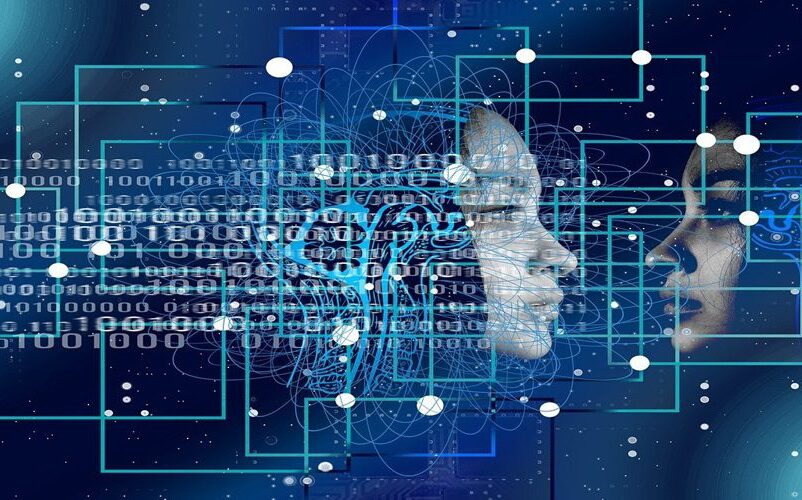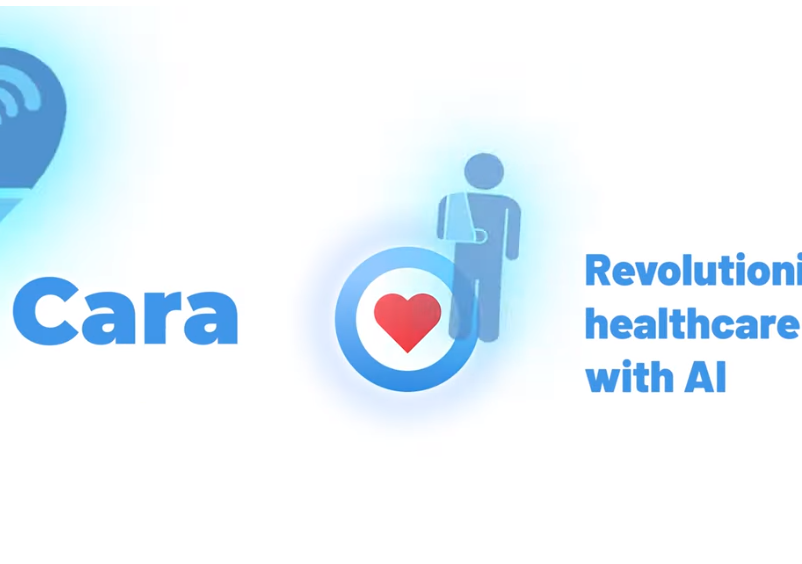
Are you ready to embark on an exhilarating journey into the ever-evolving world of artificial intelligence? As this cutting-edge technology continues to transform our lives, there is no better time than now to delve deeper and expand your understanding. Whether you’re a curious beginner or a seasoned expert, we have curated a list of recommended books that will take you through the complex nuances of AI. Join us as we unravel the mysteries behind intelligent machines and explore the limitless possibilities they hold. Get ready to be captivated by these captivating reads that are guaranteed to ignite your passion for all things AI!
Introduction to Artificial Intelligence
Artificial Intelligence (AI) has been a topic of intrigue and fascination since its inception. Often portrayed in science fiction as sentient robots or advanced virtual assistants, the reality of AI goes far beyond what we see on screen. In fact, AI has become an integral part of our daily lives, from voice recognition technology on our smartphones to recommendation algorithms on streaming services.
So, what exactly is AI? In simple terms, it refers to the ability of machines or computer programs to perform tasks that usually require human intelligence. This includes understanding language, recognizing patterns, and making decisions based on data. The goal of AI is to create intelligent machines that can process information and solve problems just like humans do.
Different misconceptions surrounding AI
Artificial Intelligence (AI) has been a hot topic among technology enthusiasts and the general public alike. With its potential to revolutionize various industries and enhance our daily lives, it is no wonder that AI has captured the imaginations of many. However, along with this interest comes numerous misconceptions and myths surrounding AI. In this section, we will explore some of the most common misconceptions surrounding artificial intelligence.
1. AI Will Take Over Human Jobs: One of the most prevalent fears about AI is that it will soon replace human jobs, leading to widespread unemployment. This belief stems from the misconception that AI possesses human-like intelligence, which is not true. While AI can automate certain tasks and improve efficiency in various industries, it still requires human supervision and cannot completely replace human workers.
2. All Artificial Intelligence is Equal: Another common misconception is that all forms of artificial intelligence are the same, but in reality, there are different types of AI with varying capabilities. For example, machine learning algorithms can be classified as weak or strong depending on their level of autonomy. Additionally, there are other forms such as deep learning and natural language processing that have different uses and limitations.
3. Artificial Intelligence Can Think for Itself: There is a misconception that AI possesses consciousness like humans do – often referred to as “strong” or “general” artificial intelligence. However, current forms of AI are programmed by humans and can only perform tasks they have been trained or designed for.
Essential books to read for beginners interested in AI
As a beginner interested in the field of artificial intelligence, it can feel overwhelming trying to navigate through the vast amount of information and resources available. While there are plenty of online courses, articles, and videos that can help you learn about AI, nothing quite compares to the depth and insight provided by a well-written book.
Here are some essential books that every beginner interested in AI should read to expand their understanding of this complex field:
1. “Artificial Intelligence: A Modern Approach” by Stuart Russell and Peter Norvig
Considered as one of the most widely used textbooks on AI, this book provides a comprehensive overview of topics such as problem-solving, reasoning, decision-making, machine learning, natural language processing, and robotics. It also delves into ethical considerations surrounding AI technology. With its clear explanations and real-world examples, this book is an excellent starting point for beginners.
2. “Machine Learning: A Probabilistic Perspective” by Kevin Murphy
This book offers a more mathematical approach to understanding AI through the lens of machine learning. It covers fundamental concepts like probability theory, Bayesian networks, and hidden Markov models in detail. The author also includes practical applications with code examples to help readers develop an intuitive understanding of these complex topics.
3. “The Singularity is Near: When Humans Transcend Biology” by Ray Kurzweil
Written by renowned futurist Ray Kurzweil – who has been accurately predicting technological advancements for decades – this book explores how artificial intelligence will shape the future of humanity. It delves into topics such as genetics, nanotechnology, and robotics, painting a thought-provoking picture of what is to come.
4. “Superintelligence: Paths, Dangers, Strategies” by Nick Bostrom
This book discusses the potential risks and benefits associated with the development of superintelligence – AI systems that surpass human intelligence. The author provides insights into how this technology could impact our societies and offers suggestions for mitigating potential dangers.
5. “Deep Learning” by Yoshua Bengio, Ian Goodfellow, and Aaron Courville
As one of the most sought-after techniques in AI today, deep learning is a must-learn topic for beginners. This book provides a comprehensive overview of deep learning concepts and techniques used to train neural networks. It also includes practical examples and code snippets to help readers build their own deep learning models.
6. “Human Compatible: Artificial Intelligence and the Problem of Control” by Stuart Russell
Written by one of the co-authors of “Artificial Intelligence: A Modern Approach,” this book examines how we can ensure that AI systems are compatible with human values and goals.
Advanced readings for those with prior knowledge on the subject
For those who are already familiar with the basics of artificial intelligence, there are many advanced readings available that can help expand your understanding and deepen your knowledge of this complex subject. These books dive deeper into topics such as machine learning, neural networks, natural language processing, and more.
1. “Deep Learning” by Ian Goodfellow, Yoshua Bengio, and Aaron Courville
Considered a must-read for anyone interested in deep learning, this book provides a comprehensive overview of the field and its applications. It covers both theoretical foundations and practical techniques for training deep neural networks, making it accessible to those with prior knowledge while still providing new insights.
2. “Artificial Intelligence: A Modern Approach” by Stuart Russell and Peter Norvig
This classic textbook has been used in universities around the world and is considered one of the most comprehensive guides to artificial intelligence. It covers a wide range of topics including intelligent agents, problem-solving algorithms, probabilistic reasoning, natural language processing, robotics, computer vision, and more.
3. “Reinforcement Learning: An Introduction” by Richard S. Sutton and Andrew G. Barto
For those interested specifically in reinforcement learning (a type of machine learning where an agent learns how to make decisions based on feedback from its environment), this book is an essential read. It provides a thorough introduction to the field along with practical examples and exercises for hands-on learning.
4.”Natural Language Processing with Python” by Steven Bird, Ewan Klein, Edward Loper
This book is a great resource for those interested in natural language processing (NLP), the field of AI that deals with understanding and processing human language. It covers topics such as text classification, information extraction, and sentiment analysis using the popular programming language Python.
5. “Hands-On Machine Learning with Scikit-Learn, Keras, and Tensorflow” by Aurélien Géron
This practical guide is perfect for those who are looking to deepen their knowledge of machine learning by building models and solving real-world problems. It covers both classic algorithms and more recent developments in the field, using popular open-source tools like Scikit-Learn, Keras, and Tensorflow.
The role of ethics in artificial intelligence and recommended books on the topic
As the advancements in artificial intelligence (AI) continue to shape our world, one crucial aspect that has come into focus is ethics. AI systems are designed and programmed by human beings, making ethical considerations an essential factor in their development and deployment. The decisions made by these systems can have a significant impact on our society and individuals, making it necessary for us to carefully consider the ethical implications of AI.
There are various key ethical concerns surrounding AI, such as the potential for biased decision-making, invasion of privacy, loss of jobs due to automation, and the creation of autonomous weapons. These issues highlight the need for ethical guidelines to ensure responsible development and use of AI.
At its core, ethics in AI involves identifying potential risks and impacts and addressing them through proactive measures. This requires a multidisciplinary approach involving experts from various fields such as computer science, philosophy, sociology, law, and psychology.
Recommended Books on Ethics in Artificial Intelligence:
1. “Robot Ethics 2.0: From Autonomous Cars to Artificial Intelligence” by Patrick Lin et al.
This book explores the complex ethical dilemmas arising from advancements in robotics and AI technology. It delves into topics such as robot-human interactions, machine morality, privacy issues in surveillance technologies, and more.
2. “Weapons of Math Destruction: How Big Data Increases Inequality and Threatens Democracy” by Cathy O’Neil.
In this eye-opening book, O’Neil discusses how algorithms used in areas like finance , employment, and criminal justice can perpetuate discrimination and reinforce existing biases. She also offers solutions for creating more ethical and transparent data-driven systems.
3. “Superintelligence: Paths, Dangers, Strategies” by Nick Bostrom.
In this thought-provoking book, philosopher Nick Bostrom explores the potential risks and benefits of creating artificial superintelligence. He raises important ethical questions about the potential consequences of creating a machine that surpasses human intelligence.
4. “The Ethical Algorithm: The Science of Socially Aware Algorithm Design” by Michael Kearns and Aaron Roth.
This book addresses the crucial role that algorithms play in shaping our daily lives and the importance of ensuring their ethical implications are carefully considered. It provides practical insights on how to design algorithms that are both efficient and socially responsible.
5. “Artificial Intelligence: A Guide for Thinking Humans” by Melanie Mitchell.
This book provides a comprehensive overview of AI, exploring its history, advancements, limitations, and ethical considerations. It also touches on broader philosophical questions such as what it means to be human in an age of intelligent machines.
The future of AI and how it impacts our society
The future of AI is a topic that has been widely discussed and debated in recent years. As technology continues to advance at an unprecedented pace, the potential implications of artificial intelligence on our society have become a hotly contested subject.
On one hand, there is excitement about the possibilities that AI brings – from improved efficiency and convenience in everyday life to groundbreaking advancements in various industries. On the other hand, there is also concern about the impact of AI on employment, privacy, ethics, and even our very way of life.
So what does the future hold for AI and how will it affect our society? Let’s take a closer look at some key factors to consider.
1. Advancements in Automation
One area where AI is already making significant progress is automation. With machine learning algorithms becoming more sophisticated and capable of handling complex tasks, many jobs that were previously done by humans are now being taken over by machines. This trend is expected to continue as companies seek to cut costs and increase productivity through automation.
While this may result in increased efficiency and reduced labor costs for businesses, it also raises concerns about job displacement and the widening gap between skilled and unskilled workers. How can societies ensure that everyone benefits from these advancements rather than leaving some behind?
2. The Role of Ethics
Ethical considerations are crucial when discussing the future of AI. Artificial intelligence systems have the potential to make decisions and take actions without human intervention based on programmed rules or data analysis. However, who sets these rules and decides what data is used? Without proper oversight and ethical guidelines, there is a risk of AI systems perpetuating bias or making harmful decisions.
To prevent this, it will be essential for society to establish ethical standards for the development and use of AI. This includes addressing issues such as algorithmic bias, transparency in decision-making processes, and accountability for AI’s actions.
3. Impact on Employment
One of the most significant concerns about the future of AI is its potential impact on employment. As automation continues to replace human workers in various industries, many fear that this could lead to widespread unemployment and income inequality.
However, some experts argue that while certain jobs may become obsolete due to AI, new job opportunities will also be created. For example, the development and maintenance of AI technology will require skilled workers in areas such as data science and engineering.
It will be crucial for societies to address these changes by investing in education and retraining programs to help displaced workers transition into new roles.
4. Changes in Education
As AI becomes more prevalent in our daily lives and takes over tasks that were previously done by humans, the skills needed for the workforce are also changing. This means that education systems will need to adapt to prepare students for an increasingly automated world.
Conclusion
As artificial intelligence continues to advance and shape our world, it is important for us to have a deeper understanding of its complexities. The recommended books in this article offer valuable insights into the history, current state, and future possibilities of AI. Whether you are a technology enthusiast or simply curious about the potential impacts of AI on society, these books are sure to expand your knowledge and open up new perspectives. Start delving into the fascinating world of artificial intelligence today!





